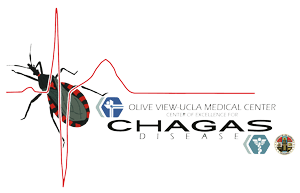
Chagas Disease and Immigration
It is important to point out that while many Latin American immigrants live with Chagas disease, immigrants did not “bring” Chagas disease into the United States. The parasites and the kissing bugs that transmit the disease have existed in what is now the U.S. for thousands of years, covering the southern half of the country from Florida to California. We know that the disease has long been transmitted in the United States, but we do not yet know to what extent. Furthermore, immigrants did not “bring” kissing bugs into the U.S. The native species which transmit the disease in the U.S. are mostly different from those found in Latin America, although some species are naturally found on both sides of the border.
Halting immigration would do nothing to stop Chagas disease within the U.S. The disease naturally exists within local kissing bugs and several species of animals. The main way Chagas disease could spread between people in the U.S. is through blood transfusions, which are now checked for the parasite. In fact, this is the main way we have discovered cases of Chagas disease up until now.
An enormous body of research shows that immigrants are actually healthier than the U.S.-born population and use healthcare less often. However, some conditions are still more common among this group, including Chagas disease. This disease is treatable (at very low cost) if caught in time, ensuring that people with the disease, whether immigrant or U.S.-born, can continue to live long, productive lives. Unfortunately, less than 1% of all people with the disease are currently getting the treatment they need.
Policies which target immigrants discourage people from seeking healthcare. This is true not only for immigrants, but for their relatives who might be U.S. citizens. This type of discriminatory approach will only ensure that both citizens and immigrants continue to suffer from Chagas disease. We will not eliminate the disease unless we safeguard programs which provide healthcare to all people, regardless of income, insurance or immigration status. The Center of Excellence for Chagas disease believes that healthcare is a human right. This policy makes sense in moral, medical, and even economic terms.

CENTER OF EXCELLENCE FOR CHAGAS DISEASE
FOLLOW US